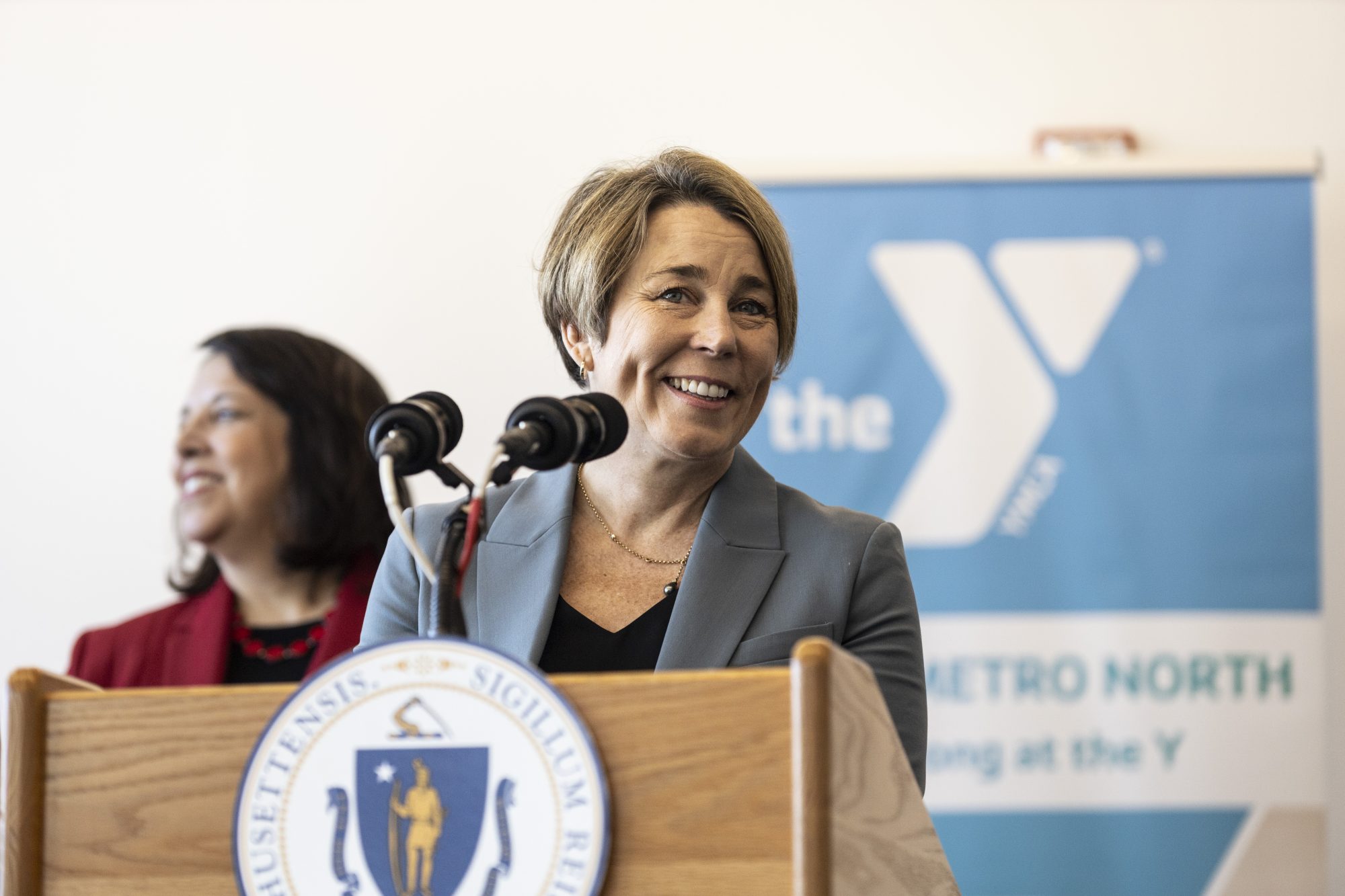LYNN — Gov. Maura Healey announced a nearly $750 million tax relief package proposal at the Demakes Family YMCA Monday morning.
Healey plans to file the proposal Wednesday alongside her first budget recommendation. If passed, the $742 million package would alter some of the state’s pre-existing tax credits and establish new ones, like a $600 tax credit per qualified dependent at all income levels.
The Healey administration estimated that the legislation would impact approximately 700,000 Massachusetts taxpayers.
The proposed budget recommendations include more than a dozen new and amended tax proposals, including eliminating the estate tax on properties under $3 million in value and reducing the tax rate on short term capital gains from 12 percent to five percent.
“When we developed this tax package, this proposal, we had three primary considerations: affordability, competitiveness, and equity,” Healey said.
It would also increase the cap on rent deductions from $3,000 to $4,000, and expand the cap on tax incentives for the state’s Housing Development Incentive Program [HDIP] — which currently awards market-level developers in gateway cities state tax credits of up to $10 million annually. Under the proposed tax relief package, this cap would be pushed to $30 million a year.
Healey said that the package was intended to attract business to the Commonwealth, and lower the state’s high cost of living through middle-class tax credits.
“Massachusetts has always been a national leader — in education and business, in science and technology, democracy and civil rights. But simply put, we’re not leading when it comes to affordability. Too many other states are passing us by and that hurts our ability to compete,” she said.
Discussing the HDIP tax increase, Lt. Governor Kim Driscoll said that the cap increase would have a substantial impact on economic development in cities like Lynn.
“My father was from Lynn, a West Lynner, and I recall the stories about Union Street when Lynn was the shoe capital of the USA. Shoulder-to-shoulder, you could not get down the streets hustling and bustling downtown,” Driscoll said. “The HDIP program provides the vital resources we need to bring back these regional economic hubs where the industrial era landed.”
When Lynn mother of two Rosa Robles approached the podium, she spoke in support of the proposed legislation, adding that the Child and Family Tax Credit would allow her to collect $1,200 in tax credits annually.
“Even when I work full time, I still struggle to make ends meet as a single mother. Recently, it seems like the cost of everything is going up with no end in sight,” Robles said. “That money would be a lifeline for me.”
Raw Artworks Executive Director Rosario Ubiera-Minaya, too, spoke in support of the legislation. She said that she and her husband face significant financial stress taking care of her 89-year-old father and their two teenage sons, and that “anything helps” when saving for her father’s medical care and her sons’ college education.
Healey’s proposed tax relief closely resembles a tax relief package proposed last year by former Gov. Charlie Baker. Baker’s $700 million tax relief proposal, like Healey’s, called for doubling the maximum allowed Senior Circuit Breaker Tax Credit, increasing the renter deduction, and lowering the short term capital gains tax to five percent.
Although Baker’s proposal was shot down by the legislature in 2022, Healey said “the landscape has changed” over the course of the year, and that the package would help the Commonwealth compete with other states as a place people want and can afford to live in.
“We want our businesses to thrive,” Healey said. “We want people to stay here in Massachusetts, we want people to come to Massachusetts, but part of the calculus of whether you’re going to come to Massachusetts or stay in Massachusetts is whether you can afford it.”

